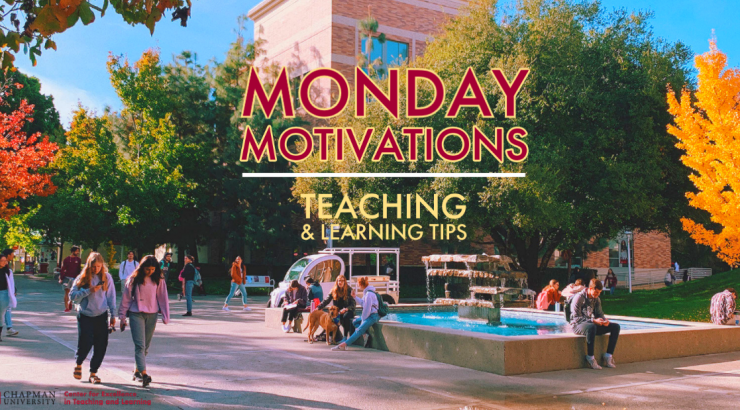
Teaching Tip for the Week of July 31, 2023
July 27, 2023
This summer, the CETL will be presenting one tip per week, to provide a more in-depth discussion of evidence-based teaching practices. If there are specific topics you would like to see CETL explore, please let us know! We also welcome guest posts from faculty who have a teaching tip they would like to share with their colleagues.
Reflective Practices Support Improved Learning Experiences
As educators, we are also lifelong learners, seeking out new ideas related to pedagogy and strategies for teaching and keeping abreast of new developments in our field. If we don’t, we run the risk of becoming stagnant, or end up simply going through the motions in our classrooms. Education pioneer John Dewey was a proponent of reflective practice as a means of learning and improving our teaching skills. Regardless of how many years of classroom experience we have, whether it’s three or thirty, all educators can learn and grow through the process of reflection and feedback.
Reflective practice is a process that leads to growth; it requires instructors to “carefully collect evidence about their teaching practice in order to analyzer, interpret, and evaluate their experiences with the intention to improve their future teaching” (Suphasri & Chinokul, 2021). In order to maintain good teaching practices, instructors need to reflect upon their teaching, and identify areas for improvement to adapt for future terms. Reflective teaching can also support inclusive classroom practices.
Here are some ways you can begin to develop a reflective teaching practice:
- Before a term begins, reflect on your course goals, and what you hope to help your students accomplish or achieve by the end of the course.
- As you develop your syllabus and course content, consider the feedback you received last term and how students’ comments might lead to revised practices or changes to your curriculum.
- During the term, keep a journal in which you make note of student interactions and experiences in the classroom – what is working and what isn’t? What did you and your students enjoy most? What activities or topics did students engage with most actively? What wasn’t enjoyable or meaningful?
- Collect student feedback throughout the term and make changes along the way as appropriate. Use the feedback to revise future iterations of the course as well.
- Look at the current educational research, or talk to colleagues to find ideas for ways to improve teaching practices. You can also schedule a consultation with the CETL team to brainstorm ways to redesign assessments, incorporate new practices, or analyze and use student feedback.
- Conduct a self-assessment or ask a colleague to conduct a peer observation of your course.
Remember that reflective practice is an ongoing process, not something we do just once. The “Stop, Practice, Collaborate” approach helps us continually reflect on our practices, as we apply what we’ve learned and engage in dialog with our students and peers to grow as educators. In doing so, can create more effective, inclusive, and enjoyable classroom experiences for ourselves and our students.
Interested in exploring any of these ideas further or discussing how you might implement them in your own teaching practices? Is there a tip you’ve tried that you would like to share with colleagues? Contact CETL or schedule a consultation to continue the conversation.


